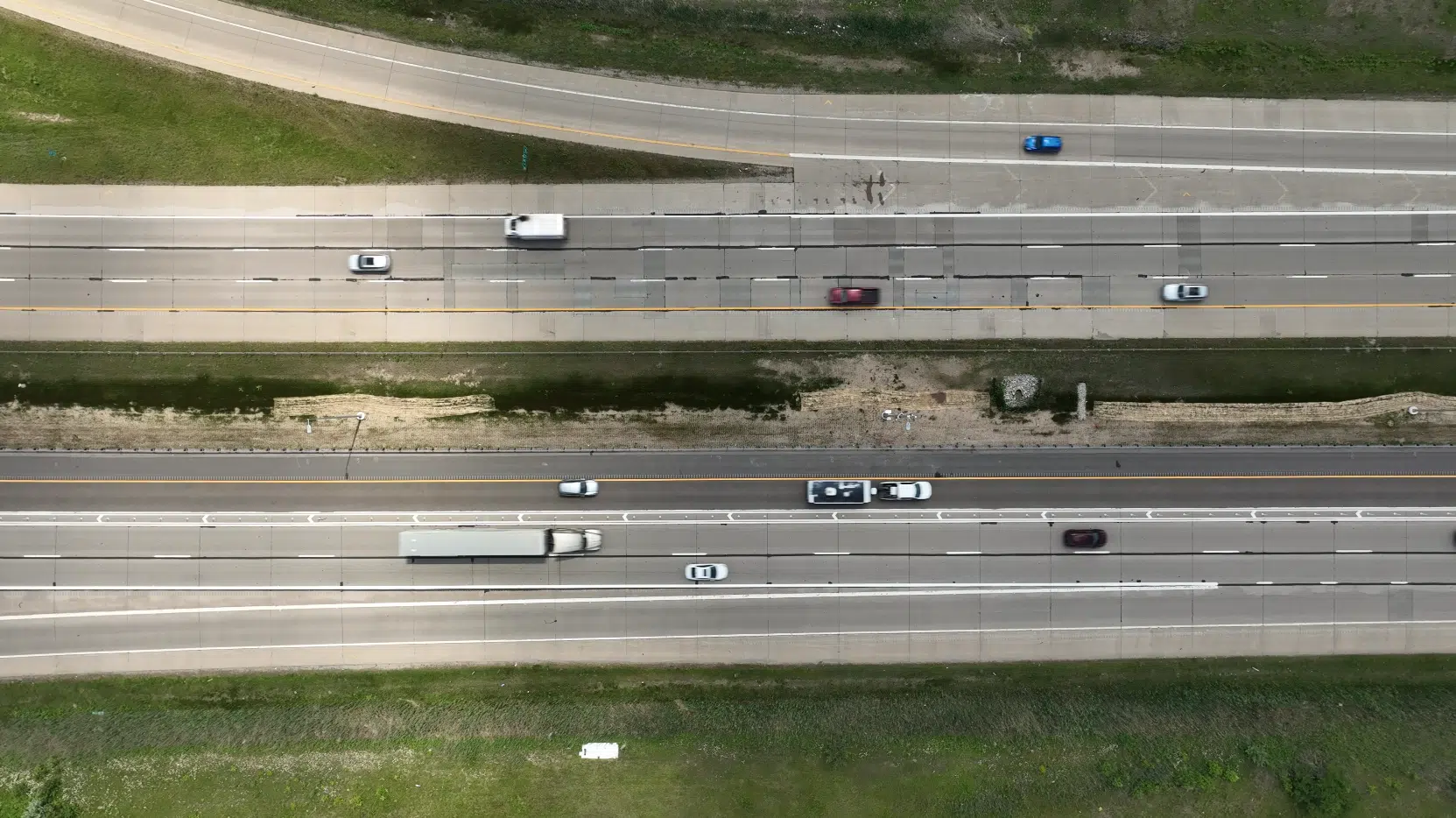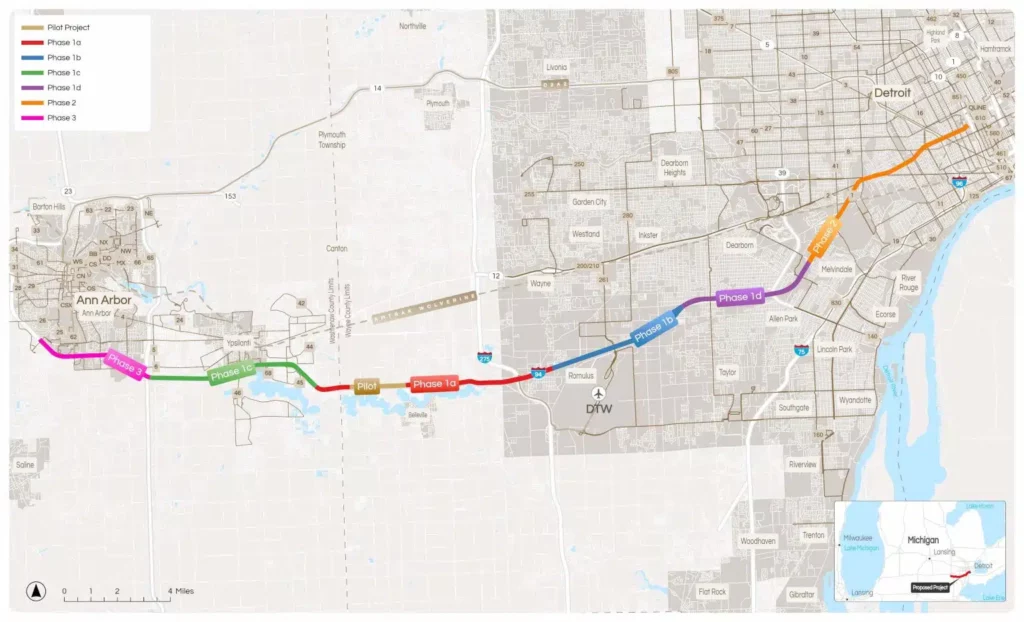
Michigan is set to revolutionize its infrastructure by constructing the first smart highway in the United States. This development involves equipping a three-mile section of Interstate 94 with advanced sensors and communication devices to enhance traffic management and driver safety.
The project, spearheaded by the Alphabet-backed startup Cavnue, marks a significant innovation in transportation technology. The stretch between Ann Arbor and Detroit will serve as the pilot area for this initiative, with plans to extend the smart highway across an additional 40 miles in subsequent phases.

Cavnue’s implementation includes placing poles every 200 meters along the highway. These poles are outfitted with sensor pods, compute pods, and communication equipment, alongside cameras that monitor the road continuously. The data collected by these devices are processed using AI and machine learning algorithms to promptly detect and alert on hazardous driving conditions.
This smart infrastructure is designed to provide real-time updates to both the Michigan Department of Transportation (MDOT) and drivers, about obstacles, accidents, or congestion on the road. The overarching goal is to alleviate traffic congestion, minimize accident rates, and enhance the efficiency of emergency responses.
Interestingly, Cavnue’s technology promises compatibility with most modern vehicles equipped with navigation features, although it would not support older, classic cars without such capabilities.
While Michigan is a trailblazer in the U.S. for this technology, it is worth noting that other countries, such as Great Britain, have already embarked on similar initiatives as early as 2014, indicating a global momentum towards smarter roadway systems.
Featured Image courtesy of Cavnue
